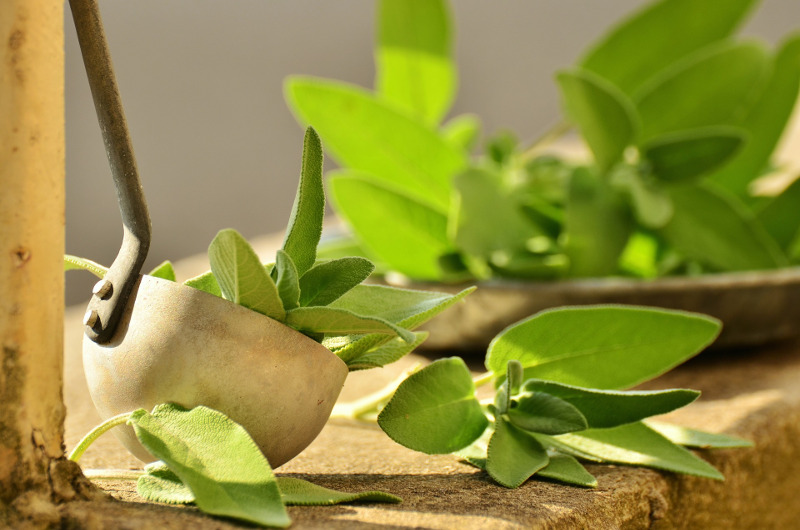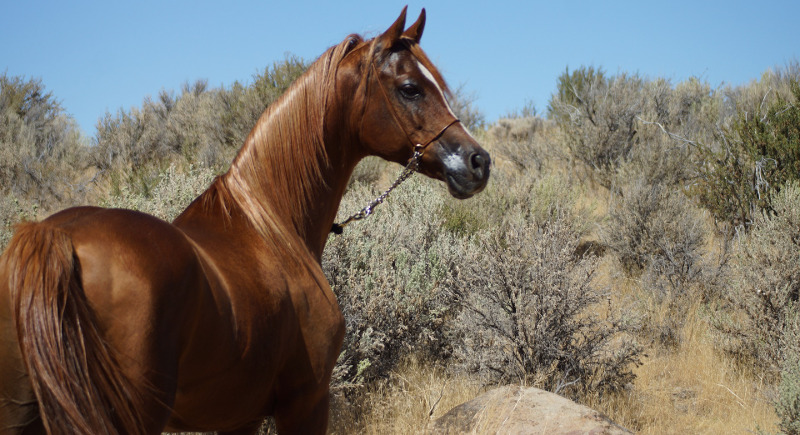Concern for your family and animals is likely at the top of your list when determining what plants are safe to integrate into your landscape. There are over 900 varieties of salvia, so how do you know what is safe? Below we will outline safe varieties and others that may pose a risk to specific animals, as salvia is considered non-toxic to humans.
In general, ornamental salvia varieties may contain a slight amount of toxins if ingested. Specifically, red sage varieties such as Salvia splendens (Saucy Red Salvia, Saucy Wine Salvia) can be toxic if ingested in large quantities. Its effects act as an anticoagulant, specifically studied in dogs.*
Salvia divinorum is a specific variety that possesses hallucinogenic properties when steeped as a tea, chewed or even smoked. This is not a recommendation to partake in consuming Salvia divinorum, but rather a call to educate yourself further should you choose to use it in any form that can be ingested/consumed. Please note that the research is quite extensive on both the good and bad qualities of consuming this particular variety of salvia. Searching ‘Salvia divinorum’ uses will bring many informative studies on the health and safety of this plant.
Overall, salvia is not toxic when ingested by humans.
Edible varieties such as: Sage; Chef's Choice Rosemary and Proven Accents® Rockin'® Golden Delicious Salvia are safe to consume and actually taste good. These specific varieties are used in regular cooking seasonings and as fresh delectables for your landscape.

Are Salvia Poisonous to Children?
If you have toddlers or young children around that you are concerned may put plants in their mouths, you’re in luck! Salvia is considered to be non-toxic to toddlers, children and adults alike. Many ornamental varieties may not taste too pleasing, however there are no known toxic qualities when consumed by humans.
In fact, there are several edible varieties that are used in everyday seasonings. These varieties include Sage and Rosemary.
Is Salvia Poisonous to Dogs?
Red sage varieties known as Salvia splendens are known to be particularly toxic to dogs if ingested in large quantities. If a dog consumes a large amount of Salvia splendens, hemorrhaging will be likely and this may be hard to determine if it is happening. To be on the safe side, if your dog ingests Red sage varieties it is best to immediately take them to a veterinarian.
Although Red sage varieties of salvia are not particularly a first choice for dogs, accidental ingestion should always be considered. You may choose to keep these varieties out of reach by planting up and away from your dog or placing a fence around these plants.
There are many safe salvia varieties to have near your dog, such as:
Salvia farinacea also known as ‘Mealycup Sage’
Salvia sylvestris also known as ‘May Night Sage’
Salvia greggii also known as ‘Autumn Sage’
Salvia coccinea also known as ‘Blood Sage’
Is Salvia Poisonous to Cats?
Salvia is considered non-toxic to cats! Specific varieties such as Salvia farinacea also known as ‘Mealycup Sage’, Salvia sylvestris also known as ‘May Night Sage’, Salvia officinalis also known as ‘Common Sage’ are all great additions to have around your cat.
In fact, catnip and catmint are part of the same family as salvia: Lamiaceae.
Is Salvia Poisonous to Other Animals?
Horses in particular are sensitive to some varieties of salvia including, but not limited to: Salvia coccinea also known as ‘Scarlett Sage’ and Salvia officinalis also known as ‘Common Sage’.
Symptoms of salvia ingestion in horses may include: gastro-intestinal upset, nausea, vomiting, diarrhea. If your horse shows any of these symptoms and you suspect salvia ingestion, immediate veterinary care is recommended.
Cattle have been studied specifically with ingestion of Salvia reflexa also known as ‘Lance-leaf Sage’**. In this study of around 500 cattle, the results of being fed Salvia reflexa contaminated alfalfa hay were unfortunate. Specific immediate symptoms were noticed in nearly half of the cattle and included: lethargy, depression, anorexia, bellowing, colic and even death. Overall, 165 cattle were fatally poisoned during this study.
Although not enough information is out there in regards to all animals, it is always best to call your veterinarian about your specific animal you are concerned about.

Symptoms Of Salvia Poisoning
Always check with your doctor or veterinarian for guidance if you suspect salvia poisoning.
Here are some common symptoms to look out for:
- Vomiting
- Nausea
- Diarrhea
- Gastro-intestinal upset
- Depression
- Breathing Difficulties
Please note that not all salvia is poisonous and certainly not to every being. Humans are tolerant to salvia. Whereas dogs, horses and cattle cannot tolerate certain varieties. If you have specific concerns, please contact your medical provider or veterinarian.
Preventing Salvia Poisoning
Keep in mind that dogs, horses and cattle have been proven to have issues with specific salvia varieties, as listed above.
Install physical barriers, such as fencing, to keep these animals away from any applicable salvia plants that may be toxic.
With so many varieties of salvia and beneficial uses, due diligence is best when considering what varieties to incorporate in your landscape.
Pet Poison Helpline
If something were to happen to your furry friend, and you suspect that they are suffering from salvia poisoning, there is a poison control hotline to call for 24/7 vet advice. It is called the Pet Poison Hotline, and their phone number is (855) 764-7661.
Click here for a complete list of Pet Safe Plants.
Sources:
Panter, K.E. et al. "Clinical, pathologic, and toxicologic characterization of Salvia reflexa (lance-leaf sage) poisoning in cattle fed contaminated hay." J Vet Diagn Invest. 2021 May;33(3):538-547.
Qureshi, I.H., Ahmad, S. and Z. Kapadia. "Toxicity and anticoagulant activity of Salvia splendens." Pak J Pharm Sci. 1989 Jul;2(2):75-9.
"Salvia: A Different Kind of Weed." Poison Control - National Capital Poison Center. poison.org
 |
Author Chris Link - Published 03-07-2022 |
